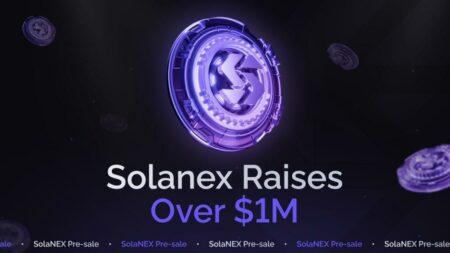On October 15, Bitnomial, a crypto derivatives exchange company, announced the upcoming launch of its U.S.-regulated perpetual futures trading platform, Botanical. Bitnomial claims this platform will offer a compliant alternative to decentralized exchanges (DEXes) and VPN-based workarounds that are commonly used for perpetual futures trading today. Botanical will allow users to trade perpetual futures, traditional futures, and options in a regulated environment, providing a seamless trading experience. Bitnomial is regulated by the U.S. Commodity Futures Trading Commission (CFTC), which includes its exchange, clearinghouse, and brokerage subsidiaries.
The launch follows Bitnomial’s recent $25 million funding round led by Ripple, the blockchain firm known for its digital asset infrastructure. Ripple’s CEO, Brad Garlinghouse, commented on the investment, emphasizing that Bitnomial’s mission to bring offshore trading models into the U.S. derivatives market presents a significant opportunity. Garlinghouse also highlighted the importance of creating a regulated marketplace for digital assets like XRP and noted that Ripple is committed to supporting Bitnomial’s vision of building a compliant platform.
One of the key features of Botanical is the integration of Ripple’s RLUSD stablecoin for settling perpetual futures. This partnership aims to introduce stablecoin settlement in a regulated manner through Bitnomial Clearinghouse, LLC, subject to necessary regulatory approvals. RLUSD is intended to provide a compliant and stable exchange medium for futures transactions. Garlinghouse will join Bitnomial’s board of directors as part of the strategic collaboration between Ripple and Bitnomial.
Botanical is currently in closed beta, offering early access to select users. Once launched, the platform aims to provide futures products through Bitnomial’s CFTC-registered FCM, Bitnomial Clearing, LLC. The perpetual futures contracts will be listed on a multiyear basis and will adhere to the regulatory framework established by Bitnomial Exchange, LLC.
Bitnomial’s CEO, Luke Hoersten, described the launch of Botanical as a bold step toward advancing the company’s mission of providing innovative, regulated digital asset trading. He highlighted the collaboration with Ripple as an endorsement of their efforts to establish a compliant marketplace for U.S. traders.
Bitnomial also mentioned in its press release that it remains committed to expanding its role in the digital asset space in addition to the launch of Botanical. The company already offers a range of Bitcoin-focused products, including physically delivered Bitcoin Futures, Options, Deci Futures, and Hashrate Futures, as part of its broader digital asset derivatives platform.
On October 10, Bitnomial Exchange LLC filed a complaint against the U.S. Securities and Exchange Commission (SEC) in the Northern District of Illinois, seeking to clarify the regulatory status of its XRP US Dollar Futures contract. Bitnomial argues that the SEC is overstepping its authority by asserting jurisdiction over the contract. Bitnomial claims that the contract, which allows market participants to trade futures on XRP, falls exclusively under the purview of the Commodity Futures Trading Commission (CFTC).
The dispute arose after Bitnomial’s self-certification with the CFTC to list XRP Futures, which the SEC opposed, contending that XRP is a security and, therefore, the futures contract should be regulated as a security future. This would require Bitnomial to register as a national securities exchange (NSE) and comply with SEC rules. Bitnomial, however, disputes the SEC’s classification of XRP as a security, pointing to a prior ruling from the Southern District of New York that determined XRP was not a security in secondary markets.
Bitnomial argues that the SEC’s stance creates an insurmountable regulatory barrier, preventing the listing of XRP Futures. The company seeks a declaratory judgment affirming that XRP Futures are not security futures, as well as an injunction to block the SEC from enforcing its interpretation. Without court intervention, Bitnomial fears financial losses and broader implications for listing other digital asset futures.









